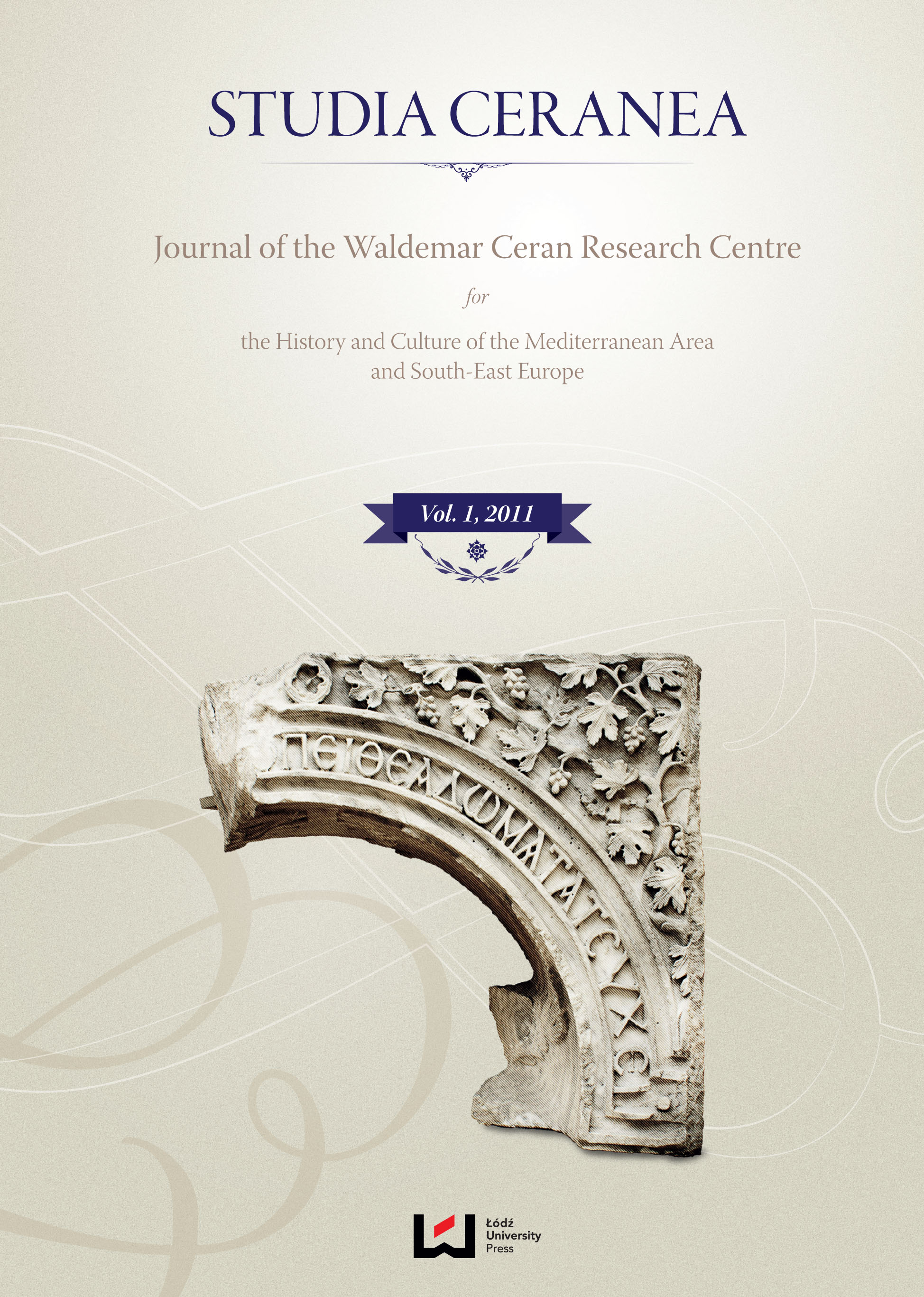Tsar Samuel Against Emperor Basil II: Why Did Bulgaria Loose the Battle With the Byzantine Empire at the Beginning of the 11th century
DOI:
https://doi.org/10.18778/2084-140X.01.12Abstrakt
At the beginning of the 11th century, after decades of almost incessant wars with the Byzantine Empire, the Bulgarian state lost its political independence. In many research works on the period in question there is emphasis put on the stabilization of the Empire at the end of the 10th and the beginning of the 11th century as a major factor or a reason for the loss of our political independence for a century and a half. Naturally, the internal political state of affairs in the Bulgarian Tsardom and the decline of its military power resulting from the loss of independence also made it easier for Emperor Basil II to put pressure on the Balkans. This article deals with the issue of the reasons for the decline in the Bulgarian military power at the end of the 10th and the beginning of the 11th century, the changes in the military stratagems observed in the wars of tsar Samuel and his successors to the throne. Why did Samuel avoid pitched battles? Why do the sources speak mostly about lightly-equipped Bulgarian armies? Why did the Bulgarians of the time take over fortresses after prolonged sieges and mainly through starvation and military stratagems? The present article attempts to give an answer to these questions, based on the written sources of the period and the works of historians.
Pobrania
Bibliografia
Ангелов Д., Чолпанов Б., Българска военна история през Средновековието (X–XV в.), София 1994.
Google Scholar
Annales anonymi presbyteri de Dioclea, ed. S. Lišev, [in:] Fontes latini historiae bulgaricae, vol. III, ed. I. Dujčev et al., Serdicae 1965.
Google Scholar
Баласчев Г., Българите през последните десетгодишнини на десетия век, vol. II, София 1929.
Google Scholar
Бешевлиев B., Прабългарските надписи, София 1987.
Google Scholar
Божилов И., Анонимът на Хазе. България и Византия на долни Дунав в края на X век, София 1987.
Google Scholar
Holmes C., Basil II and the governance of Empire (976–1025), Oxford 2005.
Google Scholar
Ioannis Scylitzae Synopsis historiarum, rec. I. Thurn, Berolini–Novi Eboraci 1973.
Google Scholar
Из „Всеобща история” на Степан Таронски Асохиг (XI в.), [in:] Българска военна история в три тома. Подбрани извори и документи, vol. I, ed. Д. Ангелов, София 1977.
Google Scholar
John Skylitzes, A Synopsis of Byzantine History, 811–1057, trans. J. Wortley, Cambridge 2010.
Google Scholar
Кецкаров B., Войни на българите в Тракия 689–972 г., София 1940.
Google Scholar
Кекавмен, Советы и рассказы. Поучение византийского полководца XI века, ed. еt trans. Г.Г. Литаврин, Санкт–Петербург 2003.
Google Scholar
Leonis Diaconi Caloënsis historiae libri decem, ed. C.B. Hase, Bonnae 1828.
Google Scholar
Повесть временных лет, vol. I, Tекст и перевод, ed. Д.С. Лихачeв, trans. idem et Б.А. Романов, Москва–Ленинград 1950.
Google Scholar
Stephenson P., Byzantium’s Balkan Frontier. A Political Study of the Northern Balkans, 900–1204, Cambridge 2000.
Google Scholar
Strässle P.M., Krieg und Kriegführung in Byzanz. Die Kriege Kaiser Basileos’ II. gegen die Bulgaren (976–1019), Köln–Weimar–Wien 2006.
Google Scholar
Symeonis Magistri annales, ed. I. Bekker, Bonnae 1838.
Google Scholar
The Tactica of Leo VI, ed. et trans. G. Dennis, Washington 2010.
Google Scholar
Венедиков И., Военното и административното устройство на България през IX и X век, София 1979.
Google Scholar
Yahyā al-Antākī, Cronache dell’Egitto Fātimide e dell’Impero Bizantino 937–1033, trans. B. Pirone, Milano 1998.
Google Scholar
Златарски B.H., История на Българската държава през средните векове, vol. I, pars 2, От славянизацията на държавата до падането на Първото царство (852–1018), София 1927.
Google Scholar
Pobrania
Opublikowane
Jak cytować
Numer
Dział
Licencja

Utwór dostępny jest na licencji Creative Commons Uznanie autorstwa – Użycie niekomercyjne – Bez utworów zależnych 4.0 Międzynarodowe.














